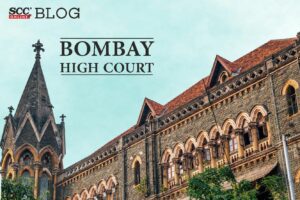Bombay High Court: In a case filed by Lata (‘petitioner’) daughter of the deceased who committed suicide and left a suicide note which pointed towards the guilt of the petitioner and her mother for offence under Section 306 read with 34 of Penal Code, 1860 (‘IPC'), a Division Bench of Manish Pitale and G.A Sanap, JJ., quashed the FIR against the petitioner and her mother stating that there is no proximate link between the suicide note recording harassment allegedly at the behest of the petitioner and the extreme step taken by the deceased due to a time gap between the date on which the suicide letter was written and the date on which the suicide was committed.
The Court observed that in the present case, the petitioner, allegedly through her mother, was making demands towards shares in the agricultural land or monetary relief from the father, however, such repeated demands or alleged increase in the demands cannot lead to a finding that prima facie the demands were being made with the intention of driving the father to commit suicide.
The deceased had two wives and children from both the wives and the informant in the present case is the son-in-law of the deceased, who is married to the daughter of the deceased from his first wife. It was alleged that a suicide note was found which clearly demonstrated that no option was left for the deceased, but to take the extreme step, because of the aggressive behavior of the co-accused i.e., mother of the petitioner, due to instigation on the part of the petitioner.
Reliance was placed on Sanju v. State of M.P., (2002) 5 SCC 371, wherein it was found that the alleged abusive words were used by the accused against the deceased, two days prior to the date when the deceased was found hanging. In these circumstances, the Supreme Court found it fit to quash the criminal proceedings.
Further reliance was placed on M. Mohan v. State, (2011) 3 SCC 626, wherein the Supreme Court emphasized that there ought to be a proximate link between the incidents alleged against the accused and the suicide by the deceased. On the facts of the said case, it was found that when the alleged incidents had taken place about four days prior to the suicide committed by the deceased, no proximate link could be attributed.
In the case of Amalendu Pal v. State of West Bengal, (2010) 1 SCC 707, it was held that mere harassment without any positive action on the part of the accused proximate to the time of occurrence, which led to the suicide, would not amount to an offence under Section 306 of the IPC.
The Court remarked that the contents of the suicide note brought out the fact that Shobha (co-accused) at the behest of the petitioner was making monetary demands or asking for a share in agricultural land from the deceased. The demand in itself, at worst, may have been unreasonable or a demand which the father was unable to fulfill, but it would be stretching things a bit far to reach a finding that the accused as the daughter, through her mother intentionally acted in such a manner to drive the deceased to commit suicide.
The Court held that on a perusal of the suicide note shows that it was dated 09-09-2021, while the actual act of suicide was committed on 14-09-2021, thus, there is no proximate link between the suicide note recording harassment allegedly at the behest of the petitioner and the extreme step taken by the deceased on 14-09-2021.
[Lata v. State of Maharashtra, 2022 SCC OnLine Bom 2840, decided on 22-09-2022]
Advocates who appeared in this case :
Mr. A. M. Sudame, Advocate, for the Petitioner;
Mr. S. M. Ghodeswar, APP, for the Respondent No.1 State.
*Arunima Bose, Editorial Assistant has reported this brief.

